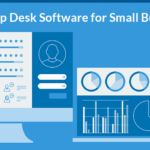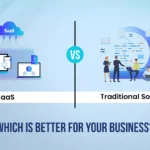Starting a new business is an exciting yet challenging journey. For many entrepreneurs, managing costs while still accessing essential tools and technologies is crucial for success. In today’s digital age, software solutions play a significant role in streamlining operations, improving productivity, and enhancing customer experiences. Fortunately, there are numerous cost-effective software solutions tailored specifically for startups. This article explores some of the best options available, focusing on various categories such as project management, communication, marketing, accounting, and more.

Understanding the Importance of Software Solutions for Startups
Why Startups Need Software
In a competitive landscape, startups must leverage technology to:
- Streamline Operations: Automating processes saves time and reduces errors.
- Enhance Collaboration: Effective communication tools foster teamwork and innovation.
- Boost Productivity: Software solutions can help teams work more efficiently.
- Improve Customer Engagement: Tools that manage customer relationships can drive sales and loyalty.
Cost Constraints and Challenges
Startups often face financial limitations, making it essential to choose software solutions that offer value without breaking the bank. Here are some of the challenges startups encounter regarding software:
- Limited Budgets: Many startups operate on tight budgets, necessitating careful spending.
- Lack of Resources: Startups may not have dedicated IT teams, so user-friendly solutions are crucial.
- Scalability Needs: As startups grow, their software solutions must scale with them.
Categories of Cost-Effective Software Solutions
1. Project Management Software
Efficient project management is key to meeting deadlines and delivering quality results. Here are some cost-effective project management tools for startups:
- Trello: A visual project management tool that uses boards and cards to organize tasks. Trello offers a free version with basic features, making it ideal for small teams.
- Asana: Known for its user-friendly interface, Asana helps teams track projects, assign tasks, and set deadlines. The basic plan is free, which is excellent for startups just starting.
- ClickUp: This all-in-one platform offers a range of features for task management, docs, goals, and more. With a free version available, ClickUp provides a lot of functionality without a price tag.
2. Communication Tools
Effective communication is vital for collaboration, especially for remote teams. Here are some cost-effective communication solutions:
- Slack: A popular messaging platform that allows teams to communicate in real time. Slack offers a free plan with limited integrations, which is suitable for small teams.
- Microsoft Teams: This tool combines chat, video conferencing, and file sharing, making it a versatile choice. The free version provides ample features for startups.
- Zoom: For video conferencing, Zoom is a top choice. Its free plan allows unlimited one-on-one meetings and up to 40 minutes for group meetings, perfect for startups that need to connect with clients and teams.
3. Marketing Automation Tools
Marketing is crucial for attracting customers, and startups can benefit from affordable marketing solutions:
- Mailchimp: A widely used email marketing platform that offers a free tier for up to 500 subscribers. It’s perfect for startups to build and engage their audience without significant costs.
- Buffer: This social media management tool helps schedule and analyze posts across multiple platforms. Buffer offers a free version with basic features, making it suitable for startups.
- Canva: While primarily a design tool, Canva helps startups create professional marketing materials. The free version provides numerous templates and design elements, enabling effective branding.
4. Accounting and Finance Software
Managing finances is crucial for any startup. Here are some affordable accounting tools:
- Wave: A free accounting software that provides features for invoicing, accounting, and receipt scanning. It’s perfect for startups looking to manage their finances without spending a dime.
- Zoho Books: While not free, Zoho Books offers a cost-effective solution with plans starting at just $9 per month, making it accessible for startups.
- QuickBooks Online: Although slightly pricier, QuickBooks offers robust accounting features. They often have discounts or trials that startups can leverage to test the software.
5. Customer Relationship Management (CRM) Tools
Building strong customer relationships is essential for growth. Here are some budget-friendly CRM options:
- HubSpot CRM: A free, user-friendly CRM that helps startups manage contacts, track sales, and automate marketing. It’s a great starting point for new businesses.
- Zoho CRM: Offering a free tier for up to three users, Zoho CRM helps startups manage sales and customer interactions efficiently.
- Freshsales: Freshsales provides a free version that includes essential CRM features, making it a good choice for startups looking to manage leads and customer relationships.
6. E-Commerce Platforms
For startups venturing into e-commerce, there are several affordable platforms:
- Shopify: While not the cheapest option, Shopify offers a 14-day free trial, and its basic plan starts at $39/month. It’s user-friendly and highly scalable.
- WooCommerce: A free plugin for WordPress, WooCommerce allows startups to create an online store without upfront costs, though hosting and other expenses may apply.
- Big Cartel: Aimed at artists and makers, Big Cartel has a free plan for up to five products, making it a great entry point for startups with limited inventory.
7. Cloud Storage Solutions
Storing and sharing files securely is vital for startups. Here are some cost-effective options:
- Google Drive: Offers 15 GB of free storage and integrates seamlessly with other Google Workspace tools. It’s excellent for startups needing easy file sharing and collaboration.
- Dropbox: While Dropbox has limited free storage (2 GB), its user-friendly interface and integration capabilities make it a popular choice for startups.
- Microsoft OneDrive: Included with Microsoft Office subscriptions, OneDrive offers 5 GB of free storage, making it a practical choice for startups already using Microsoft products.
8. Productivity Tools
Boosting productivity can lead to significant gains for startups. Here are some tools to consider:
- Evernote: A note-taking app that helps organize ideas, tasks, and projects. The free version is robust and great for startups needing a simple organizational tool.
- Notion: This all-in-one workspace allows teams to collaborate, manage projects, and take notes. Notion offers a free plan with essential features.
- Todoist: A task management tool that helps prioritize tasks and track progress. Its free version is effective for individual users and small teams.
Tips for Choosing the Right Software Solutions
1. Assess Your Needs
Before investing in any software, assess your specific needs. Consider the features that are essential for your business operations and growth.
2. Look for Free Trials
Many software solutions offer free trials. Take advantage of these to test the software’s usability and features before committing.
3. Prioritize Scalability
Choose software that can grow with your startup. Look for solutions that offer tiered pricing or add-on features for when your business expands.
4. Read Reviews and Compare
Research user reviews and compare different options. This can provide insights into which software might be the best fit for your startup.
5. Consider Integration
Choose software that can easily integrate with other tools your startup is using. This can save time and streamline your workflow.
Conclusion
In conclusion, startups can access a wide array of cost-effective software solutions that cater to their specific needs. By choosing the right tools for project management, communication, marketing, accounting, CRM, e-commerce, cloud storage, and productivity, startups can enhance their operations without straining their budgets. As technology continues to evolve, being strategic about software investments will play a crucial role in the success and sustainability of startups in today’s competitive landscape. Embrace the available tools, and watch your startup flourish!



















